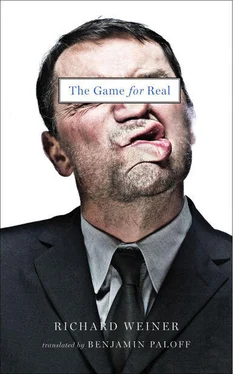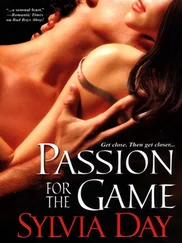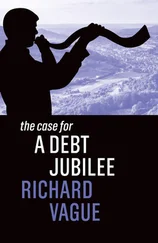“I don’t have a fake. You haven’t said a word about a fake. I’m not pretending, I don’t know how to. I want to steal honestly.”
“Steal honestly? Steal honestly?” Tiemen was dashing about rakishly. “Fine! As you wish. But don’t count on me, eh? You have a club. So hit her with the club.” And, solemnly, “Otherwise there’s no bracelet for you. And you know how much depends on the bracelet.”
“Too late!” And Mrs. Steel straightened up impressively; it was Mrs. Steel, the whole Mrs. Steel from Benedictine Mill, and her certainty that he recognized her dazzlingly was so banal somehow that she condescendingly uttered a “yes, it’s me,” not caring about how dangerously she was compromising the majesty of the appointed period with a familiar theatrical intermezzo: “Too late! Not only did you want to rob me, on top of that you were going to murder me. Rob me, murder me — a weak and helpless woman.”
And she grabbed him firmly by the shoulder. — He looked around, they were alone: Tiemen, the saleswoman, and himself, for the doorman, though present, had assumed in the meantime the convincing quality of a permanent prop.
“Shoot her,” he cried, trying to extricate himself. “Come on, you have her revolver! Shoot her, or don’t you see that she’s tricked me?”
But the saleswoman, having torn the club away from him, again burst into laughter; so Tiemen lit himself a cigarette and spoke precisely as though his words had but one purpose: to set to music the arc described by the tossed, still-burning match:
“Shoot her! But what are you thinking? Get my hands dirty. . These days it’s no longer done, in our circles it’s no longer done. . Tricked you! Tricked you! What was the poor thing to do if you weren’t going to get on with it yourself?”
Some bell started ringing. Remarkably, you could tell that even the bell had been coached, “but,” he said to himself, “credit where credit’s due: it is masterfully imitating the bell of an impregnable cash register, roused by unannounced thieves,” and at the same time this jangling also produced a darkness that swept down upon the street, drowning its as-though-green-house-grown traffic. But the bell also produced a light, erupting from the shop’s hidden sources, that seemed to dissolve in the milky silence; and it also produced shadows on the partition between the shop and its back room. Those shadows numbered four, yet no sooner had he blinked than they materialized: Look, he was encircled by four policemen with martial mustaches and the expression of magnanimous bailiffs who have never inflicted more torture than the offender could stand before passing out. No! There were five of these individuals, but the fifth had the quality of a commander who never even resorts to torture, and it was Mr. Steel, with the heroically puffed-out chest of a man ready for anything life might throw at him.
Thereupon it turned out that the darkness in which the street was drowned was merely the lights going down on the stage so that the scenery could be changed without lowering the curtain; now, with the gradual drawing of the gauze drapes, the darkness was slowly fading, and when the last of them had lifted — the bell was cut off — the street turned out to be like so many others. On the street, there commenced a rectilinear motion that curved gracefully not far from there, craving the charms of the spiral, which it actually found quite quickly as well. It commenced along the street and slowly started spinning. Everything started spinning, notably the shop, as well as the saleswoman, Tiemen, the four policemen, and Mr. Steel. But not him: the fixed center putting his hands up in the melodramatic gesture of the penitent villain who is imploring them, for the love of God, to throw the cuffs on him. The policemen grew into a quartet, like soldiers carved into a single wooden slab, and it was a quartet so intricately detailed and of such hungry life force that, whirling, it sucked down everything else. At length, it passed into an undifferentiated and rushing blue — a preponderance of uniforms — where even the tanned whiteness of the policemen’s faces came crashing down. And he was realizing what it is to get drunk on enthusiasm for one’s own wretchedness when he noticed that someone had hit the brake: the blue turning was slowing down, and from the non-difference that hampered it there emerged, one after the other — like the drowned — what was left: first of all, and before anything else, the four policemen’s faces, but faces no longer with martial mustaches, rather four lovely faces, cruel, but by no means evil, and they were the faces of people leaving, who wave gallantly and say:
“You’ll get out of this somehow. À un de ces jours. ”
And they actually did say this. — “ À un de ces jours ” had transformed into a quite material obstacle, upon which all motion foundered because (he told himself): “ à un de ces jours ” is just a mockingly respectful “goodbye.”
And that “goodbye” was the impact that no fall resists, and it, too, needed to be stopped, with a jolt so harsh that a brief and nasty cramp of “ non possumus ” ran through his calves.
The tall and flimsy stalk, to the tip of which he had been clinging till now by God-knows-what miracle, snapped, felled, and he, dreadfully sober, on a café chair behind a small mahogany table: emptied glasses and six theater tickets, scattered like a family of refugees in that place where they had been blown by the gale of impoverished misfortune, which howls for an echo that remains adamantly quiet.
And Tiemen is here with a dolefully fuming cigarette and the smile of an ashamed good Samaritan.
“Where are they going, Tiemen? After all, I was supposed to buy tickets to the cinema.”
Tiemen was drawing in the strewn cigarette ash. “Well, you know what they’re like.”
“If I do know them. . And they,” he screamed, so that the people turned around, “and they don’t know me?”
“That is possible only from this day forward,” Tiemen said curtly; but just then he took the cigarette from his lips, leaned forward, and placed his left hand on the ashen hand of the nameless:
“Now then. .”
“Teach me, Tiemen. — Tiemen, I’ve had something knocking around my head for a long time. .”
“What’s knocking around your head?”
“So many months already I’ve been chasing myself in vain. — That I might find myself, that I’d find myself, if only I dared to. .”
“What?”
“Steal.”
Tiemen’s hand stopped him.
“Uh-uh, no, not that way. It’s not something you can teach; you have to know how.”
“To steal?”
Tiemen withdrew his friendly hand, sat sideways, and said, bitterly disappointed, “So you really are taking ‘steal’ literally? Steal! To hell with stealing. Take things easy, like a sneak thief in steerage — a sportsman-idealist. Can you do that? You can’t. So suck it up.”
The days grew so short that they weren’t enough, they overflowed with milky futility and reeked of fermentation gone bad; then, even though they had begun at four o’clock, the nights could no longer accommodate all their specters: they protruded from those nights deep into rebellious, peevishly clouded daybreaks, which arrived as though only so the infinite nights would take pity on the people who hadn’t fallen asleep, and because something has to replace the actual night. — Time’s wound had been weeping for fourteen days already, and it still hadn’t drained. The sun will come out here and there, a prefect sacrificing a scrap of stolen siesta to appease his conscience and see what the class has been up to in his illegal absence. But the sun, too, is merely rain gone wrong. It does the puddles on the embankment good, not so anyone else. But the puddles’ satisfaction is as base as slime. They creep everywhere and behind everything. The only thing they don’t venture through is the padded doors of bank directors; the puddles are also afraid of the garrulous lights of cafés, the false, cleverly arranged puzzles of small theaters, teatimes in ateliers with plank beds, and the standardized coziness of rooms in one-hour hotels. A hard-won reconciliation or a retraction as resolute as an exclamation point, which is a reconciliation divisible without remainder, is perhaps even better protection from a teary November stain. But he, having a choice between two equally unattainable things, has decided that his despicable poverty is from an insufficiency of what may once have been attainable: a room with a padded door, the encouraging chatter of café incandescents, the proxenetic dimness of chummy salles de spectacle , the literary pretexts of sex and their hurried stripping-down in discreet alcoves — he gave it up, as an ailing man gives up forbidden foods: with choked-down and renunciatory rage, which compensates not for one’s hope in recovery, but for the triumph of one’s unnecessary will, by which he recoups his damages. But the agreeable, calculating ascetic dressed with intentional slovenliness, so that he was two fingers away from hobo; he, with the greasy cap and the raggedy old shoes that the rag man didn’t want to buy off him, looked down from embankments and bridges at the turbid, helplessly indifferent river, and looking into it he read, well, maybe not so much that there’s no sure point at all, but that there’s no sure point that would mean much to him. And the bit player, who toyed boorishly with the fact that he has nothing, spent his days lying to himself, with a violence bordering on pleasure, that what he doesn’t have is just the thing that matters to him a great deal, and unhappily so. But one day, when, having caught a glimpse of his old “gang” from afar, he couldn’t pull together hot or cold, when the thought that “there they go” was accompanied by neither sorrow nor revolt, he admitted to himself, with a clairvoyance we’ll call heroic, that he had forgotten to suffer; he had even headed off the notion’s correlate, that is, that that’s why he’s on the bottom.
Читать дальше












